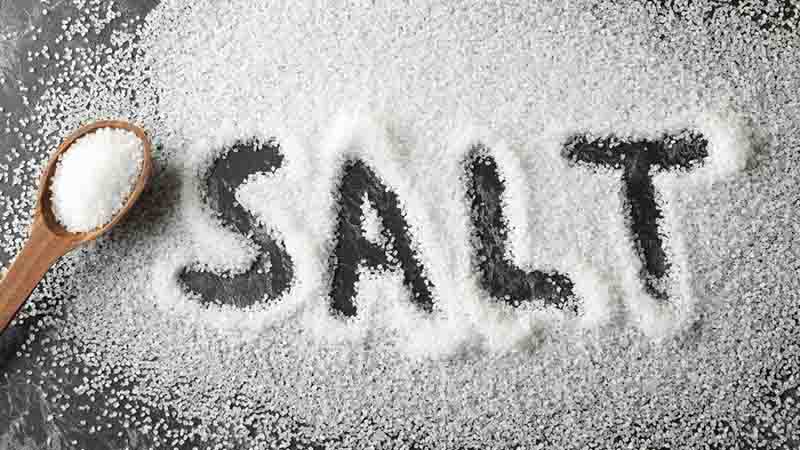Salt is like the magician of flavors. It makes our food taste amazing. But sometimes, it can be like a tricky friend who causes trouble when we're not looking. Most of us know that too much salt is not good for our blood pressure, but there's more to the story.
Salt (sodium chloride) is a mineral our bodies need to work properly. It helps with important things like making our nerves and muscles work correctly and keeping our body fluids in balance. But the problem is that we often eat salt without realizing it because it's in many processed foods and restaurant dishes. It can be harmful to our health if we're not careful.
Excessive salt intake can have serious repercussions on your health. In this blog, we will explore how consuming too much salt can impact your overall well-being.
Hypertension (High Blood Pressure)
One of the most well-known effects of excessive salt consumption is its link to hypertension or high blood pressure. Sodium, a major component of salt, can cause the body to retain excess water, increasing blood volume and subsequently raising blood pressure. Over time, high blood pressure can strain the heart and blood vessels, increasing the risk of heart disease, stroke, and other cardiovascular problems.
Kidney Function
Your kidneys are critical in managing sodium levels in your body. When salt intake is excessive, the kidneys work harder to eliminate the excess sodium. This prolonged strain on the kidneys can lead to kidney damage and decrease their ability to effectively filter waste from the blood, potentially resulting in chronic kidney disease.
Fluid Retention
Excessive salt intake can lead to fluid retention, causing bloating and swelling, especially in the extremities. It can be uncomfortable and exacerbate conditions like edema in individuals with heart or kidney issues.
Osteoporosis
High salt intake can result in increased calcium excretion through urine. Over time, this can lead to a decrease in bone density, potentially contributing to the development of osteoporosis. Osteoporosis makes bones weak and brittle, increasing the risk of fractures and other skeletal issues.
Stomach Cancer
There is emerging evidence suggesting a link between excessive salt intake and stomach cancer. High salt consumption can damage the stomach lining and increase the risk of developing gastric ulcers and even cancer.
Cognitive Function
Some studies have explored the potential impact of high salt intake on cognitive function. While more research is needed in this area, there is evidence to suggest that excessive salt intake may be associated with cognitive decline, particularly in older adults.
Autoimmune Diseases
High salt intake can trigger autoimmune responses in some individuals, potentially worsening conditions like multiple sclerosis, rheumatoid arthritis, or psoriasis. The exact mechanisms behind these connections are still under investigation.
Increased Thirst
Consuming too much salt can make you thirsty. While this might seem like a minor inconvenience, excessive thirst can lead to overconsumption of sugary beverages or unhealthy snacks, contributing to weight gain and other health issues.
Ways to reduce your salt intake and mitigate its negative health effects
- Read food labels to check for sodium content.
- Cook more at home to have better control over your salt usage.
- Choose fresh, whole foods over processed ones.
- Experiment with herbs and spices to season your food instead of relying on salt.
- Educate yourself about hidden sources of salt in your diet.
Conclusion
Incorporating salt into your diet is essential, but it's equally crucial to be mindful of how much you consume. The recommended daily sodium intake for adults is around 2,300 milligrams (about one teaspoon of salt), but many people exceed this limit regularly due to processed foods and restaurant meals.
By being mindful of your salt intake, you can protect your health and reduce the risk of developing conditions associated with excessive sodium consumption. Remember, a little salt goes a long way, and your body will thank you for making healthier choices in the long run.
